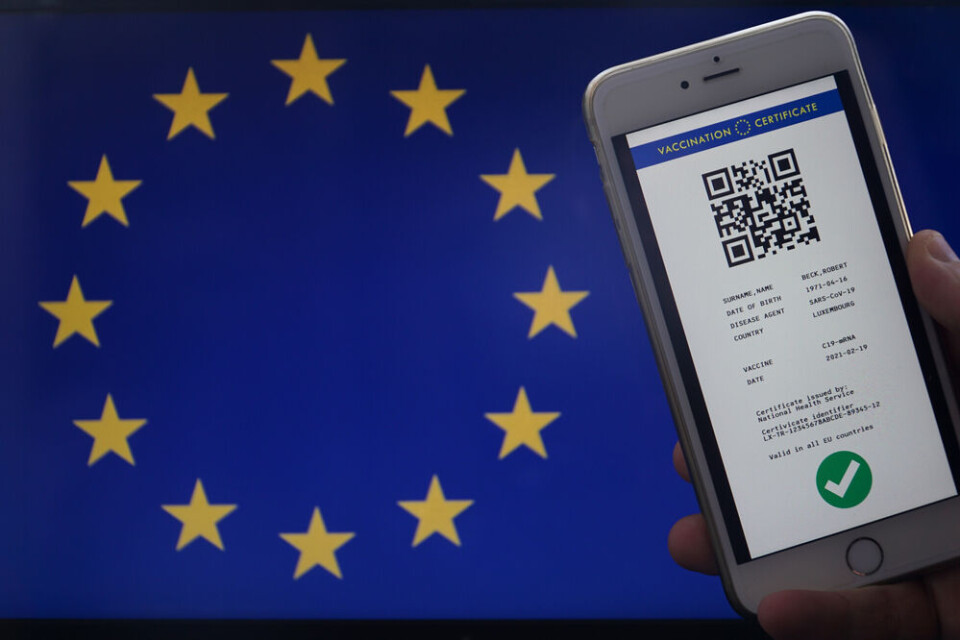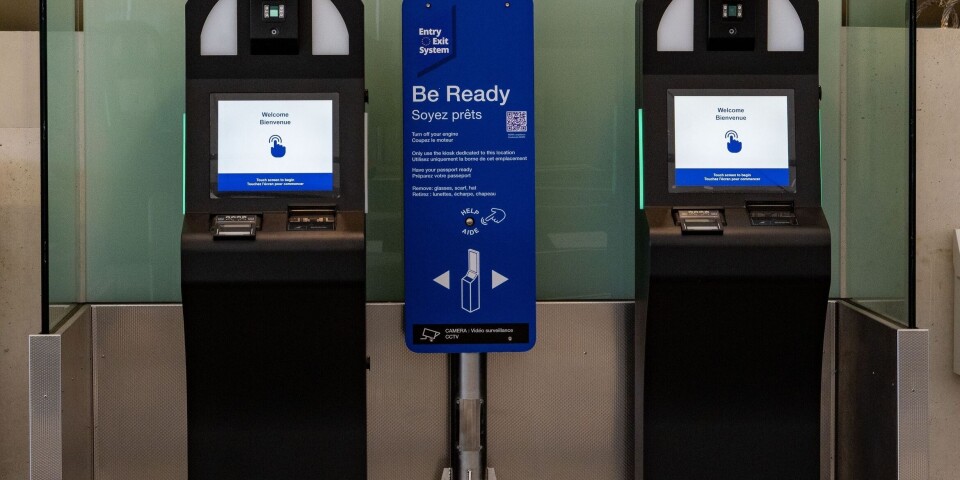-
Foundation helps Americans donate to Notre-Dame and Hermione ship restorations
Friends of Fondation de France helps Americans make tax-deductible donations
-
French city increases ‘bin tax’ by more than 90% in five years
The city is not the only one to increase the tax by a significant percentage
-
New anti-mosquito operation in Dordogne: What residents must do
Close to 100 cases of chikungunya have been recorded in department
EU Covid travel pass: Airlines warn of delays, talks with UK ongoing
Major airline and airport associations say an inconsistent approach by member states to the EU’s Covid-19 travel scheme will cause confusion. The scheme launches officially tomorrow (July 1)

Four major airline and airport associations have warned of an inconsistent approach by European Union member states to the bloc’s Covid-19 travel scheme, which is due to launch officially tomorrow (July 1).
EU countries will from tomorrow be legally obliged to accept Digital Covid Certificates (DCCs) issued in other member states, as part of a health pass scheme aimed at facilitating travel this summer. It should also be accepted in the other EEA countries (Liechtenstein, Iceland and Norway) and in Switzerland.
Talks are also continuing to take place between the EU and the UK and US as to how to integrate the countries’ Covid-19 vaccination certificates into the EU system. No time frame has yet been given on this, but an EU spokesperson said discussions with the UK were progressing well.
EU Covid travel health pass: Is integration with UK and US advancing?
A DCC is a document proving a person’s Covid-19 status, whether a certificate showing their vaccination status, a negative test result or that the traveller has tested positive for Covid-19 within the prior two weeks to six months.
But in a letter addressed to EU heads of states, the associations claim that at least 10 different approaches are being used or being reviewed for use in the EU to verify the certificates.
This could lead to longer queues at airports and longer check-in times for travellers, the groups state.
The four associations are Airlines for Europe, Airports Council International, European Regions Airline Association and International Air Transport Association.
“With the peak summer travel season upon us, the EU thankfully now has a number of tools and measures available to enable and support the restarting of air connectivity, alongside travel and tourism,” the associations stated in the joint letter.
“We need member states to urgently implement these tools in a harmonised and effective manner. We view these as essential prerequisites to travel, to avoid long passenger queues and waiting times which would create new health hazards and inevitably result in operational issues for airports and airlines”.
The DCCs are issued by each EU member state and must be accepted as proof of a person’s Covid-19 status within the bloc from tomorrow.
Rules on which authority verifies the certificate – whether it is airlines, border agents or the traveller themself – vary in the EU.
The countries have a further six weeks to put in place systems to issue and verify certificates that conform to EU norms. So far, 21 out of 27 countries, including France, have already put in place these systems.
A spokesperson for the European Commission told The Connexion he expects the other six to be ready soon, if not tomorrow.
He said DCCs are “part of the solution, not the problem”.
“The reason we presented the idea of the DCCs is to avoid any fragmentation,” he said.
“The certificates will facilitate restriction-free movement and the work of the authorities and the travel industry.
“But it is for member states to organise this.”
European Commissioners Didier Reynders, Thierry Breton and Stella Kyriakides sent a letter to the 27 EU countries on Monday (June 28), calling for a “timely and consistent implementation” of an EU recommendation on free movement restrictions and the DCCs.
The EU has set out a common approach to Covid-19 travel measures in the bloc involving a colour-coded map that defines countries’ Covid-19 risk level.
The recommendation aims to bring consistency to travel rules linked to Covid-19.
France’s own traffic-light travel system for countries takes a similar approach.
Germany this week banned non-essential travel from Portugal and introduced a mandatory quarantine-on-arrival for those who have one over fears related to the spread of the Delta variant of Covid-19.
Portugal is classified as orange under the EU’s travel scheme, which means it recommends member states do not introduce quarantines for people arriving from there for essential reasons. Germany is therefore straying from the EU approach.
The spokesperson for the European Commission stated: “The Commission strongly encourages member states to implement the recommendation [on free movement] as soon as possible…”
“This should be best done before July 1 to ensure measures are in line with the EU Digital Covid Certificate.”
What is the EU health pass?
The EU’s Digital Covid Certificate system aims to make travel around the bloc easier by synchronising the certificates issued in each country proving the Covid-19 status of people.
France updated its Covid vaccination and Covid test certificates on June 25 to make them compatible with the EU’s system.
Read our article here explaining how you can get Covid-19 test and vaccination certificates in France that are compatible with the EU system - How to ensure your French Covid certificates will work for EU travel
You can also read the following articles explaining how France’s health pass works alongside the EU’s system: France’s health pass vs the EU’s health pass: What is the difference? and European travel health pass: People in France can now access it.
In short, a Covid-19 test or vaccination certificate issued in one EU member state must from July 1 be accepted by other EU member states as long as it is in the correct European format. These say 'EU Digital Covid Certificate' on them. French vaccination certificates or Covid test certificates issued in recent days should already look like this.
From tomorrow, if you have older documents already scanned into France's TousAntiCovid app, it should be possible to update them by clicking on them and then choosing 'convertir au format européen' from a menu.

























